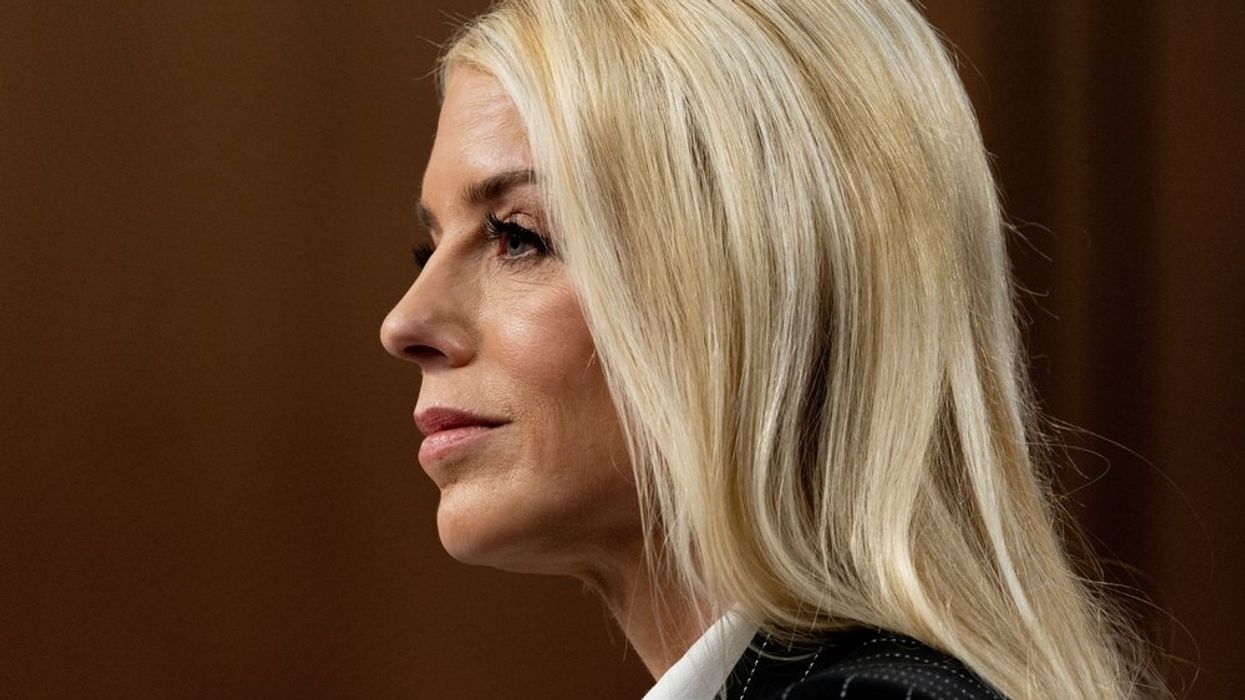SCOTUS has 'tools' to 'enforce compliance' with Trump rulings — but they aren't infallible: expert

Pam Bondi on January 15, 2025 (Maxim Elramsisy/Shutterstock.com)
Pam Bondi on January 15, 2025 (Maxim Elramsisy/Shutterstock.com)

Pam Bondi on January 15, 2025 (Maxim Elramsisy/Shutterstock.com)
Many legal scholars are warning that if President Donald Trump is able to openly defy either the U.S. Supreme Court or the lower federal courts, the United States will have a full-blown "constitutional crisis" on is hands.
Trump, in one interview, acknowledged that he has to comply with federal court rulings. But Trump and U.S. Attorney General Pam Bondi, critics say, aren't doing enough in response to a recent 7-2 High Court ruling that upheld a lower federal court decision on Kilmar Ábrego García — a Salvadoran man and Maryland resident wrongly deported to a prison in El Salvador. Bondi said that if García is returned to the U.S., he will be deported to El Salvador again.
The ruling ordered the Trump Administration to "facilitate" García's return to the United States. But García is still imprisoned in El Salvador, where President Nayib Bukele maintains that he doesn't have the power to release him.
READ MORE: At what point are Trump voters finally going to get it?
In an article published by The Atlantic on April 23, Thomas P. Schmidt — a law professor at Columbia University in New York City — examines the García case and the compliance tools the High Court has.
"So far…. the Trump Administration continues along a path of stubborn resistance rather than accommodation, part of a broader pattern that is not confined to the deportation cases," Schmidt explains. "The situation raises a very basic question about our constitutional order: Can courts force a president to comply with their rulings?..... Although the federal courts have some tools to enforce compliance, their effectiveness depends on democratic cultural norms — and those norms in turn depend ultimately on the vigilance of the American people."
Schmidt continues, "The judiciary does have a few 'guns' — its own powers of coercion — to force recalcitrant executive officials to obey. A federal court can mandate officials to answer questions under oath and to sit for depositions."
The Columbia law professor poses the question: "What if the executive branch continues its defiance despite…. sanctions?"
READ MORE: 'I believed what Trump said — but not any more!' Behind the voters dumping Donald
"At that point," according to Schmidt, "the courts could direct the U.S. Marshals Service to carry out their orders. The marshals have a statutory duty to do so. But the U.S. Marshals Service is part of the Department of Justice, which is under the supervision of Attorney General Pam Bondi. And Bondi, who is a named defendant in many cases against the (Trump) Administration, could instruct the marshals not to enforce an order against her or others in the Administration."
Schmidt adds, "It is not clear how individual marshals would resolve a conflict between their statutory obligation and an order from the attorney general….. In the end, courts can do a lot to protect our constitutional values and liberties, but they can't do everything."
READ MORE: 'Chaos at the Pentagon': Memo authorizing defense missile 'went unsigned for 3 weeks'
Thomas P. Schmidt's full article for The Atlantic is available at this link (subscription required).